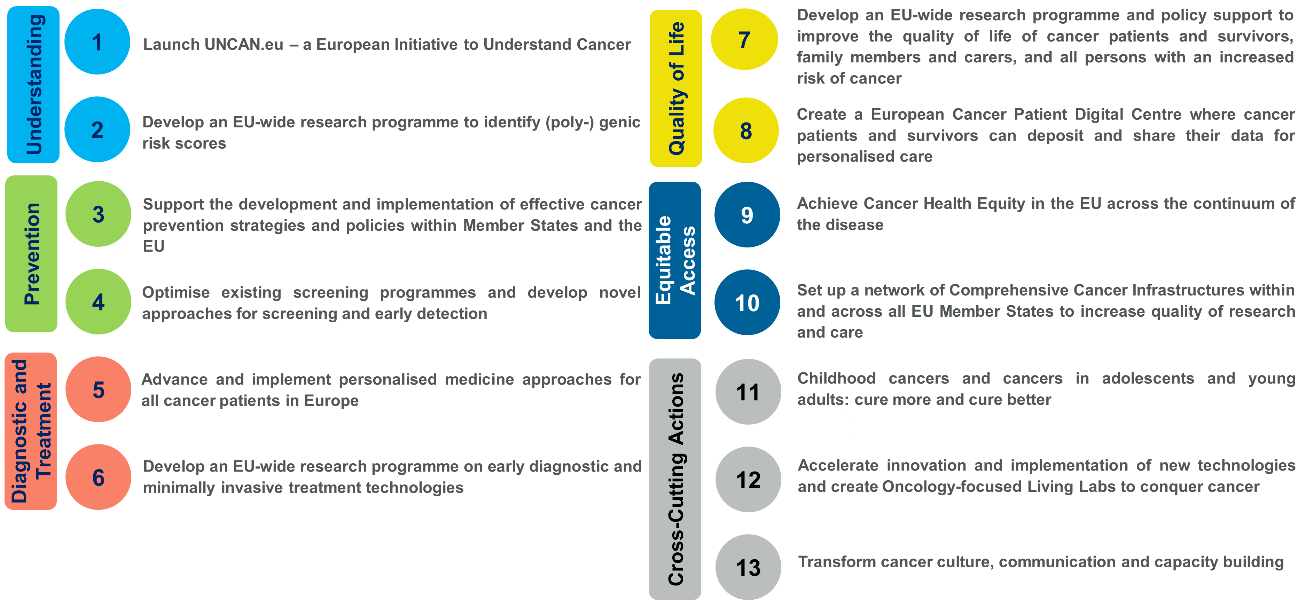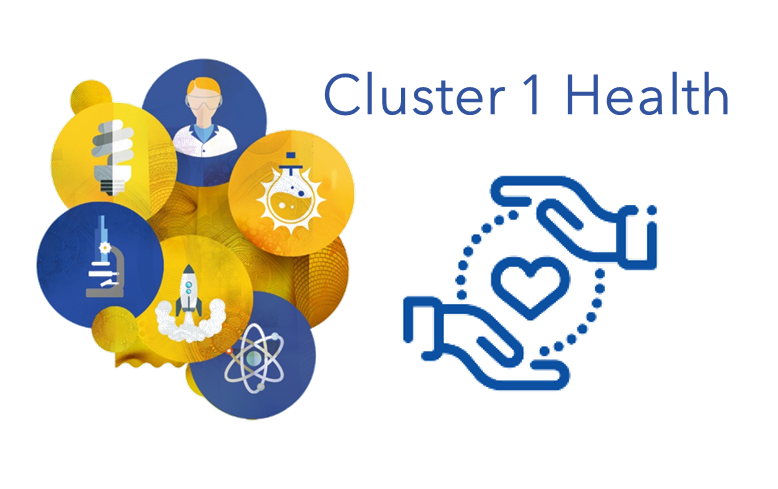A healthy population is vital for a stable, sustainable and inclusive society. Economic growth is only possible on the basis of a healthy population. Currently, the health of the European population is facing many challenges like demographic changes due to population ageing, coupled with an increase of the prevalence of chronic diseases and a consequent increase in health systems expenditure.
The major health challenges in the EU that Cluster Health will address are:
-
the lack of effective health promotion and disease prevention;
-
the rise of non-communicable diseases;
-
the spread of antimicrobial drug resistance and the emergence of infectious epidemics; increased environmental pollution;
-
the persistence of health inequalities among and within countries affecting disproportionally people that are disadvantaged or in vulnerable stages of life;
-
the detection, understanding, control, prevention and mitigation of health risks in a rapidly changing social, urban and natural environment;
-
the increasing costs for European health care systems and the progressive introduction of personalised medicine approaches and digitalisation in health and care;
-
the increasing pressure on the European health and care industry to remain competitive in and by developing health innovation vis-a-vis new and emerging global players.
The Cluster Health aims to promote and protect human health and well-being, prevent diseases and decrease the burden of diseases and disabilities on people and communities, support the transformation of health care systems and foster an innovative, sustainable and globally competitive European health industry.
To tackle these issues, Cluster Health defined six Intervention Areas:
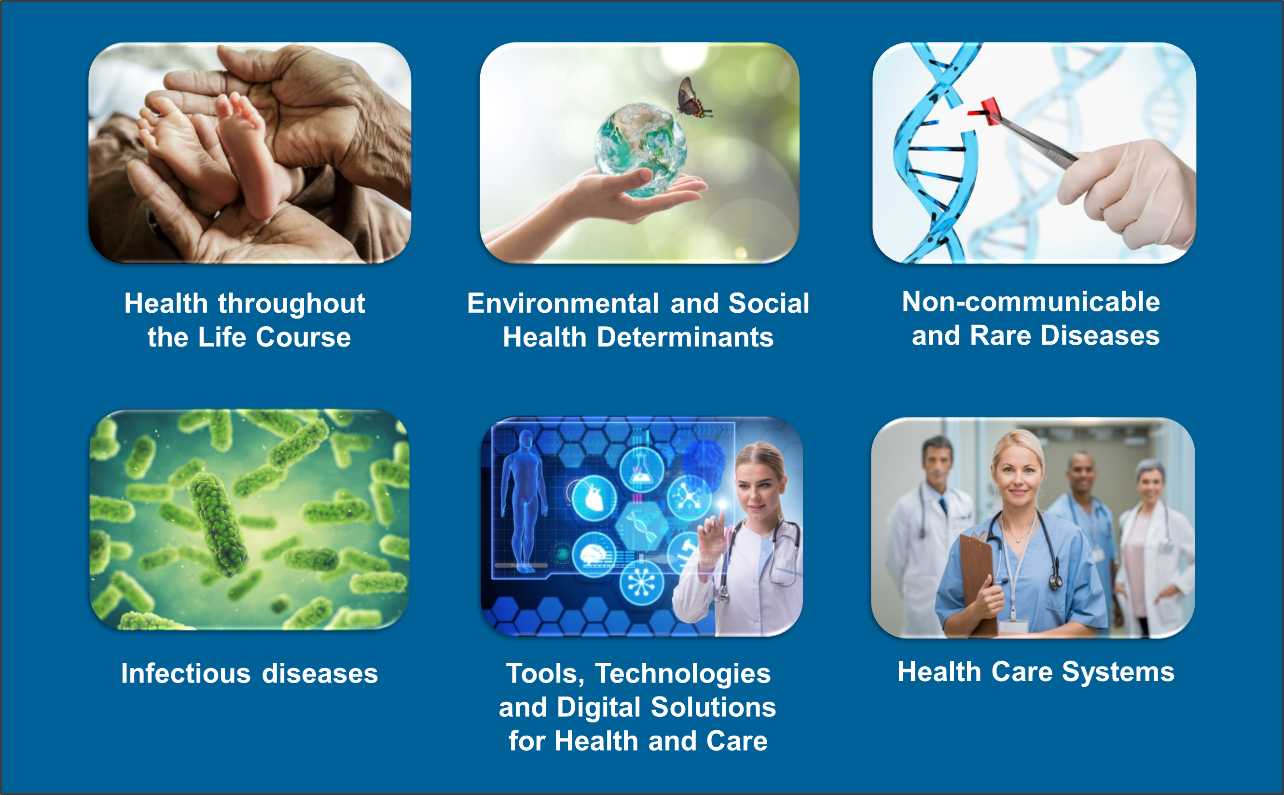
Research and innovation actions under this cluster will be key to address the health-related challenges and drivers.
The Health Cluster Working-Programmes for the period 2021-2024 are orientated to activities that will enable us to get to six Destinations or Expected Impacts.
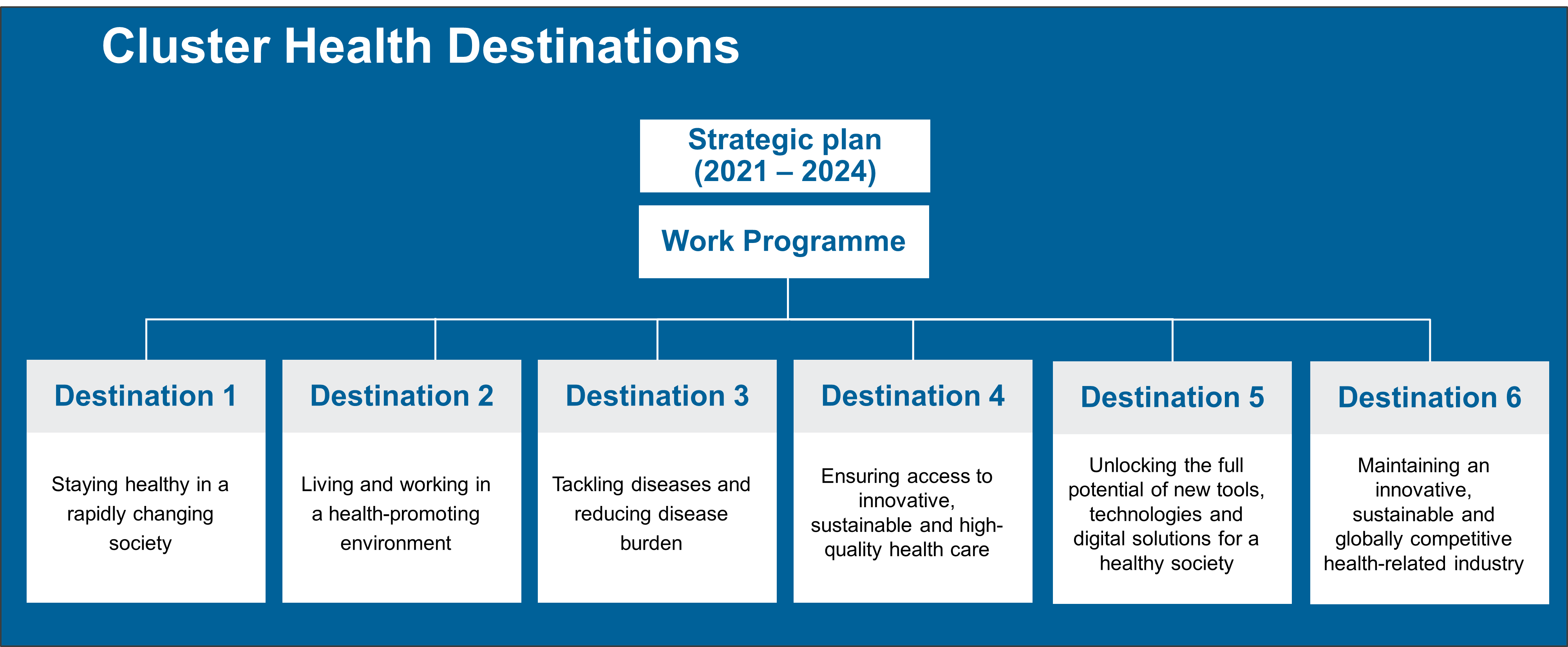
EUROPEAN PARTNERSHIPS
European Partnerships aggregate research and innovation efforts into more effective responses to the policy needs of the Union. European Partnerships must be established between the European Commission, Member States and associated countries, the private sector, foundations and other stakeholders.
The candidate partnerships in the Area of Health include two Institutionalised and six Co-Funded Partnerships.
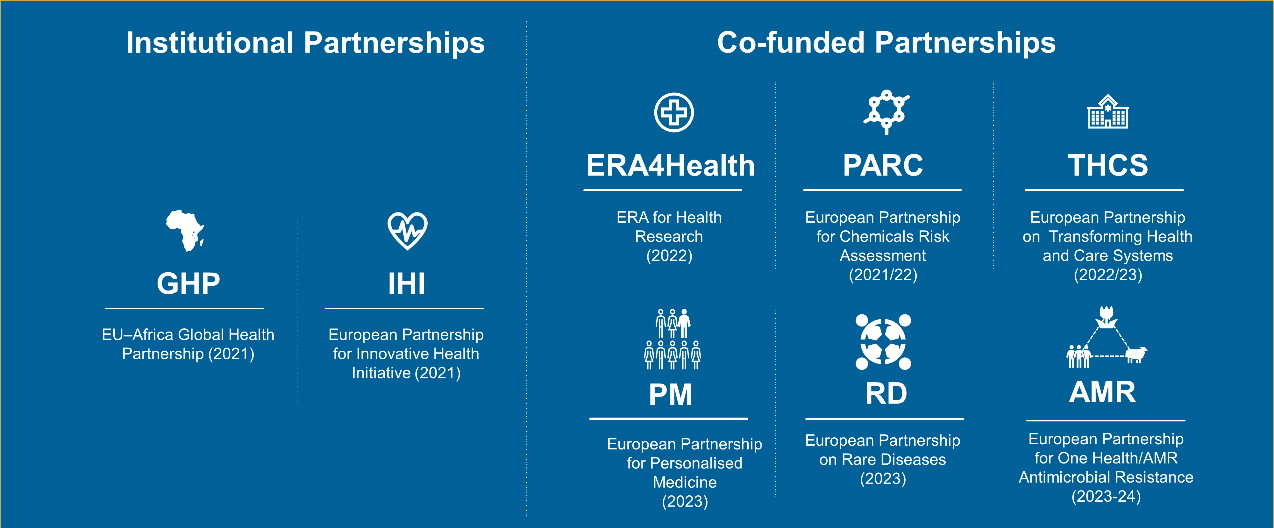
Co-Funded Partnerships
- European Partnership for Chemicals Risk Assessment (PARC)
- European Partnership – ERA for Health Research
- European Partnership on Health and Care Systems
- European Partnership for Personalised Medicine
- European Partnership on Rare Diseases
- European Partnership for One Health/AMR Antimicrobial Resistance (AMR)
Institutionalised Partnerships
- European Partnership for EU-Africa Global Health
- European Partnership for Innovative Health (Initiative)
MISSION ON CANCER
“A mission is a portfolio of actions across disciplines intended to achieve a bold and inspirational and measurable goal within a set timeframe, with impact for society and policy making as well as relevance for a significant part of the European population and wide range of European citizens.” – (Source: European Commission)
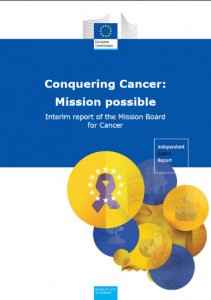 Why a Mission on Cancer? Cancer is one of the great challenges that Europe is facing and an area where research and innovation can definitely contribute to deliver solutions. Each year, 2.6 million people in the EU-27 are diagnosed with cancer. This number is expected to increase rapidly because of ageing populations, unhealthy lifestyles and unfavourable environmental conditions.
Why a Mission on Cancer? Cancer is one of the great challenges that Europe is facing and an area where research and innovation can definitely contribute to deliver solutions. Each year, 2.6 million people in the EU-27 are diagnosed with cancer. This number is expected to increase rapidly because of ageing populations, unhealthy lifestyles and unfavourable environmental conditions.
European Commission recognized the need to create a strong action where, all together, the scenario of a 25% of cancer cases in Europe by 2035 would be avoided.
The target in Mission on Cancer is “By 2030: more than 3 million more lives saved, living longer and better”. To achieve this goal, the Mission will focus on five main areas: understanding of cancer, prevent what is preventable, optimise diagnosis and treatment, support the quality of life of all people exposed to cancer, and ensure equitable access to the above across Europe.
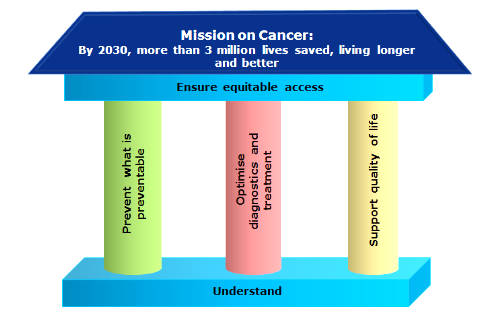
Mission on Cancer has been developed in alignment with the Beating Cancer Plan, identified as one of the priorities of European Commission, and also with the EU4Health Programme, both coordinated by DG SANTE. For further information about Mission Area: Cancer.
Mission on Cancer: Recommendations for Bold Action
